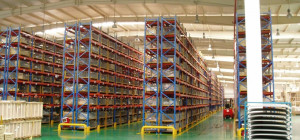 March 2020 will go down in history as the beginning of unprecedented change and disruption caused by one of the most serious global health crises. From schools and accounting firms across Australia to licensed food companies and brands, businesses faced the challenge of quickly adapting to the changes the pandemic stimulated.
March 2020 will go down in history as the beginning of unprecedented change and disruption caused by one of the most serious global health crises. From schools and accounting firms across Australia to licensed food companies and brands, businesses faced the challenge of quickly adapting to the changes the pandemic stimulated.
Running operations on “business as usual” was no longer an option. Shifting focus on establishing policies and adhering to new regulations was the only way to sustain some semblance of normalcy, especially for businesses/services deemed “essential”.
Licensed food businesses that take up the responsibility of feeding Australia are one of the essential services continuing to be impacted by the pandemic. Understandably, food safety became one of the most prevalent concerns for these businesses.
Initially, the lack of research caused concerns for transmission of the virus through food and packaging surfaces. Studies conducted following the declaration of the pandemic showed that there was no evidence of foodborne transmission of the virus.
Instead, studies showed confirmed airborne transmission of the virus, which meant that food businesses had to reconsider hygiene-related considerations in their food safety programs.
In addition to regular operations, food safety supervisors were now tasked with finding gaps arising due to the pandemic and developing a contingency plan with preventative controls and safety measures for addressing incidents of infection in the workforce.
The role of the food safety supervisor now demands increased collaboration with the business’s management and decision-makers. Keeping customers safe during this time of global stress means that food businesses need to enforce stricter measures to maintaining high levels of hygiene and reducing human interaction within production facilities, etc.
Although no direct food safety measures have been proposed by Food Standards Australia New Zealand (FSANZ) or NSW authorities, businesses had to ramp up the enforcement of existing food safety laws.
Worker Safety
Businesses that had pre-existing food safety programs were likely already had handwashing and personal hygiene practices as compulsory requirements. Food safety supervisors now had to double down on ensuring that workers adhere to and practice these policies.
In addition, the use of PPE or personal protective equipment including gloves, face masks, and face shields for workers in direct contact with customers had to be enforced. On top of existing food safety protocols, enacting the six-foot social distancing rule.
Food safety supervisors have to assess where this rule can be practised without compromising worker productivity and efficiency as well as food safety.
Furthermore, a procedure for tracking employee health became necessary. Any worker with a suspected communicable disease such as a cold had to be asked to stay at home. Currently, food businesses are reviewing their workers’ health by checking temperatures and minimising face-to-face contact between workers.
Regulations include considerations for cleaning and sanitisation of the facility, equipment used for processing or manufacturing food items, food contact surfaces, and high contact surfaces such as switches and doorknobs.
Food Safety Training
Since many food businesses require their employees to be present on-site (with worker safety measures in place), food safety training has become a priority. From hygiene practices to existing food safety policies, building and strengthening the culture around food safety is the main area of focus for supervisors.
In addition to employees working in facilities, food safety supervisors that have command over safety principles, laws, bylaws and policies also require a refresher. An online food safety supervisor course NSW will bring significant improvement in the business’s fight against the pandemic.
Recommencing Operations
As suggested on the NSW Government’s Food Authority website, food safety supervisors and management have to develop a COVID-19 Safety Plan before recommencing operations. Food regulators have also developed a list of things food businesses can and can’t do.
While the list is voluntary, it comes highly suggested for businesses looking to reopen their businesses. Those that have already recommenced services can use it to continue complying with best practices during the pandemic.
Closing Thoughts
As the vaccines are gradually rolled out across Australia, food safety supervisors must continue to revaluate existing food safety programs to make accommodations for practices and COVID-19-related considerations.
A highly trained and certified food safety supervisor will add capabilities and sensibilities essential during and after the pandemic. Instead of traditional certification programs, an online food safety supervisor course NSW is the most effective way for an employee to obtain a nationally accredited program that allows the businesses to continue protecting customer health.
Author Bio
Founder of the Australian Institute of Accreditation, Ian Webbe, leverages experience, expertise, and awareness of the industry to build food safety competence among prospective food safety supervisors and experts.







